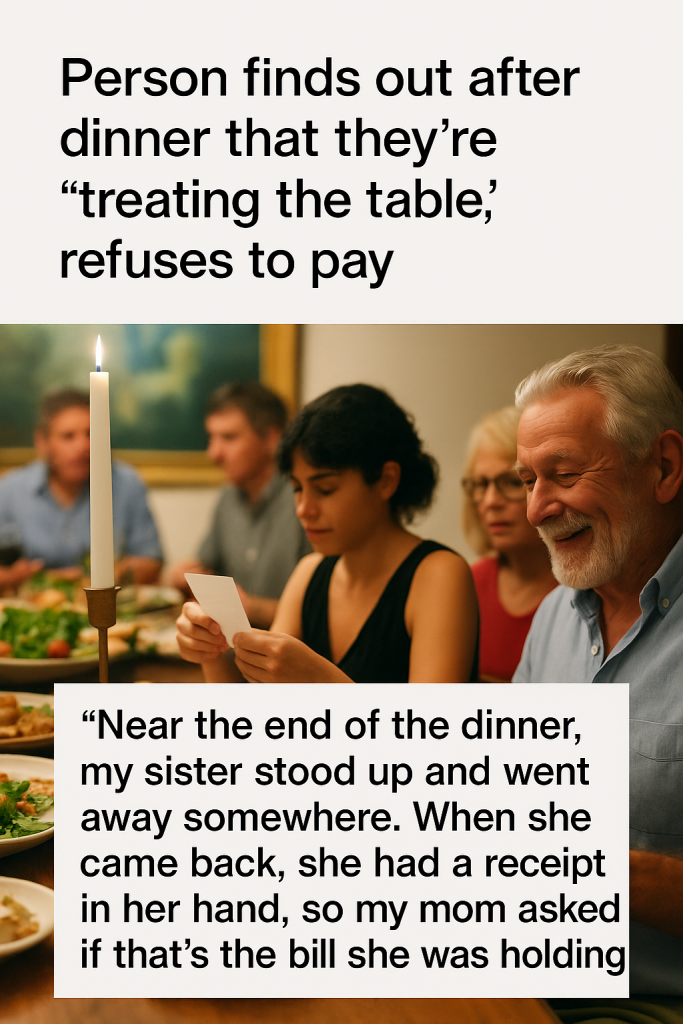A seemingly innocent dinner turned into a viral controversy after a woman discovered she was expected to cover the entire bill for her group — and refused to pay once she realized it.
The incident, which has captured social media attention in 2024, involves a group of four dining together when one guest’s assumption about the bill sparked a heated dispute. According to posts shared by those involved and eyewitnesses, the woman initially thought everyone would pay their own way. However, near the end of the meal, her sister stood up and announced she was “treating the table,” meaning she intended to pay the full cost.
What followed was an intense moment when the woman, surprised and unprepared for the hefty charge, left the restaurant instead of settling the bill. This refusal ignited a debate both at the table and online, prompting widespread discussion on social media platforms about etiquette, assumptions, and the dynamics of group dining expenses.
Understanding the “treating” concept in dining can vary widely across cultures and social circles. In some groups, one person voluntarily covers the entire cost as a generous gesture, often celebrated as a way to bond or celebrate. In others, splitting the bill is standard practice to avoid awkwardness.
In this particular case, the woman’s confusion stemmed from a lack of clear communication beforehand. Many commenters noted that the sister’s announcement came quite late in the meal, leaving little time for others to adjust expectations. Some sympathized with the woman, saying she should not have been blindsided with such a responsibility without prior discussion.
Others argued that once the sister made her declaration, the woman had an obligation to pay, as refusing to do so could be seen as disrespectful or unfair. This argument sparked a larger conversation online about the importance of honesty and transparency when it comes to financial matters among friends and family.
The viral posts accompanying the story reportedly included images of the group dining and captions describing the moment the woman got up and walked away from the table, refusing payment. The footage and text sparked thousands of reactions, with users debating who was in the right.
Psychologists and social experts chimed in, suggesting that such disputes often arise from unclear expectations and cultural differences around money. One expert noted, “When money and social relationships mix, misunderstandings are common unless all parties communicate openly.”
While this particular dinner ended abruptly, it serves as a cautionary tale about setting clear boundaries and discussing payment plans before heading out. Many social media users have since shared tips on how to handle similar situations diplomatically, including proposing split bills upfront or confirming who will pay in advance.
As group dinners remain a popular way to socialize, this incident highlights how a simple expectation mismatch can escalate quickly. Whether the woman’s refusal to pay was justified or not, the situation reveals a deeper need for open communication in social and family settings to avoid awkward and costly disagreements.
For now, the viral story continues to be shared, sparking conversations about generosity, responsibility, and respect at the dinner table — and reminding everyone to “always clarify who’s footing the bill before enjoying the meal.”



